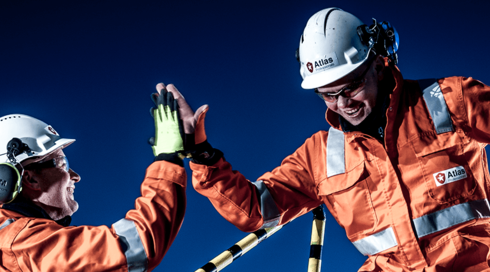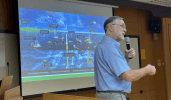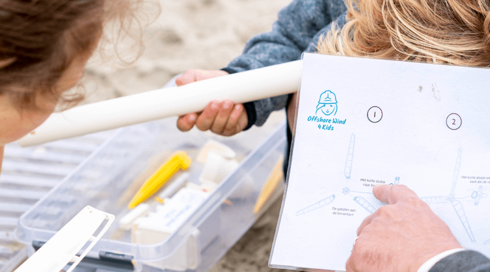2
Vattenfall — the Swedish state-owned energy giant — has an ambitious aim: “To make fossil-free living possible within one generation.” This isn't an idle wish explains Erik Hiensch, Director of Operations & Maintenance. With the right mindset, he is convinced that this can be done.
“We are optimistic that this is an achievable goal, and are investing in new technologies to help lead the way,” he says. “That includes wind, solar, e-mobility and hydrogen solutions. Of course, there are a lot of things that need to fall into place to make it happen, and it's not something we can do on our own. The whole world needs to be collaborating and going in the same direction. But I think it's clearly understood by most people and governments that climate change is not something we can just ignore and it will go away.”
Vattenfall is one of Europe’s largest producers and retailers of electricity and heat, with main markets in Sweden, Germany, the Netherlands, Denmark and the UK. It supplies electricity to 6.5 million customers and heat to 2.1 million, and 35% of the company's generation capacity comes from renewable sources.
Renewables focus
Vattenfall has also been named as one of the greenest power companies in the world by analysis company Energy Intelligence, and is also making some company efficiencies to cut emissions and costs and increase innovation. “As an example, we're outsourcing part of our business support processes in HR, finance and procurement to parties outside of the company to make state-of-the-art solutions available at lower cost levels. So that's one clear track we are on as a company. We're also constantly renewing our portfolio and shifting focus where required.” For instance, in 2016, Vattenfall sold off its lignite operations in Germany to concentrate more on the renewables market and reduce its CO2 emissions.
It has also made headlines with the building of the world's first unsubsidised wind farm, Hollandse Kust Zuid (HKZ) 1 & 2, off the Dutch coast, which will supply green electricity to between one million and 1.5 million households. This is another important step towards Vattenfall's “fossil free living” ambition. “Because the farm will be unsubsidised it will be fully exposed to the market price — and that's a milestone for the industry,” says Erik. “It's also a milestone for us as a company as it sets a baseline for new developments and tenders to remain a strong offshore player.” Construction on HKZ 1 & 2 began in May 2019, and is expected to begin generating green electricity by the end of 2022. Next to this, Vattenfall has won the tender for the second phase of the Dutch unsubsidised offshore wind farm HKZ 3 & 4. The two wind farms will have a capacity of approximately 1.5 GW combined.
It's exciting to be involved in key renewables projects like these, says Erik. An electrical engineer by trade, he worked for Siemens for eight years on the construction of gas-fired power plants before moving to utility company Nuon, where he became Head of Contracting & Construction, Wind Projects. When Vattenfall acquired Nuon in 2009, he moved to Sweden with his family, ultimately working as Head of Procurement - Renewable Projects in Stockholm. It was an experience he'll never forget. “When you work on an international assignment, it widens your view, big time,” he says. “It gives you a different perspective on yourself and how you work with other people. When you assimilate into a foreign culture, you grow massively as a person. That was a big highlight for me.” Other career highs include working on the procurement and O&M phases of offshore wind farms Sandbank and DanTysk in the German North Sea, both for Vattenfall.
Closing the gap
Erik works closely with Atlas Professionals and appreciates the deep insight the company offers into offshore wind personnel. “The industry is growing fast, and somehow the labour market needs to follow because, at the moment, there is a personnel shortfall,” he warns. “Atlas can help us find skilled people; and it can also help us develop relations with schools and other educational institutions to give people the impetus to become part of the wind industry. The talent pool needs to grow bigger, otherwise companies in the sector will start tapping into each other's resources, and that's no good. Atlas is one of the key players who can play a significant role in closing the skills and personnel gap.”
As for the future of offshore, Erik believes there will be massive growth in the sector in the years ahead, with revolutionary innovations such as floating wind turbines and interconnectors increasingly coming to the fore. “Vattenfall is keeping an eye on the markets outside Europe,” he says. “But we believe that Europe, for now, is providing enough potential for us to satisfy our ambitions.”
This interview originallly appeared in Atlas Professionals annual magazine HEROES 2019/2020 Wind Edition.
.png)
.png)


